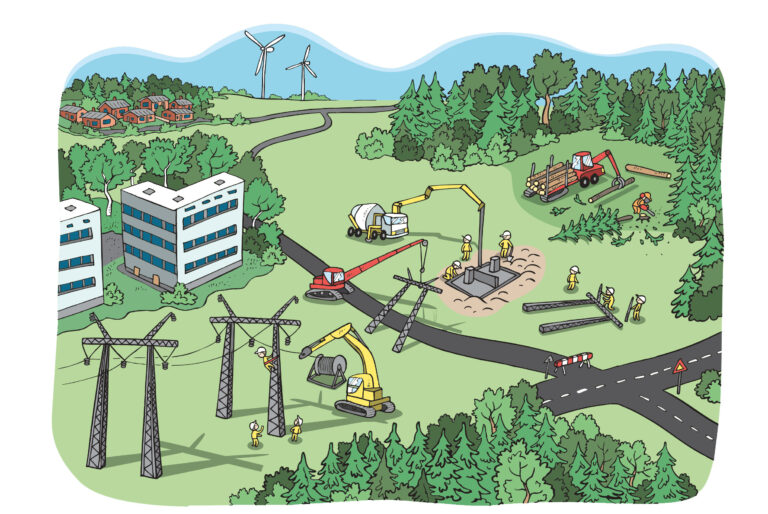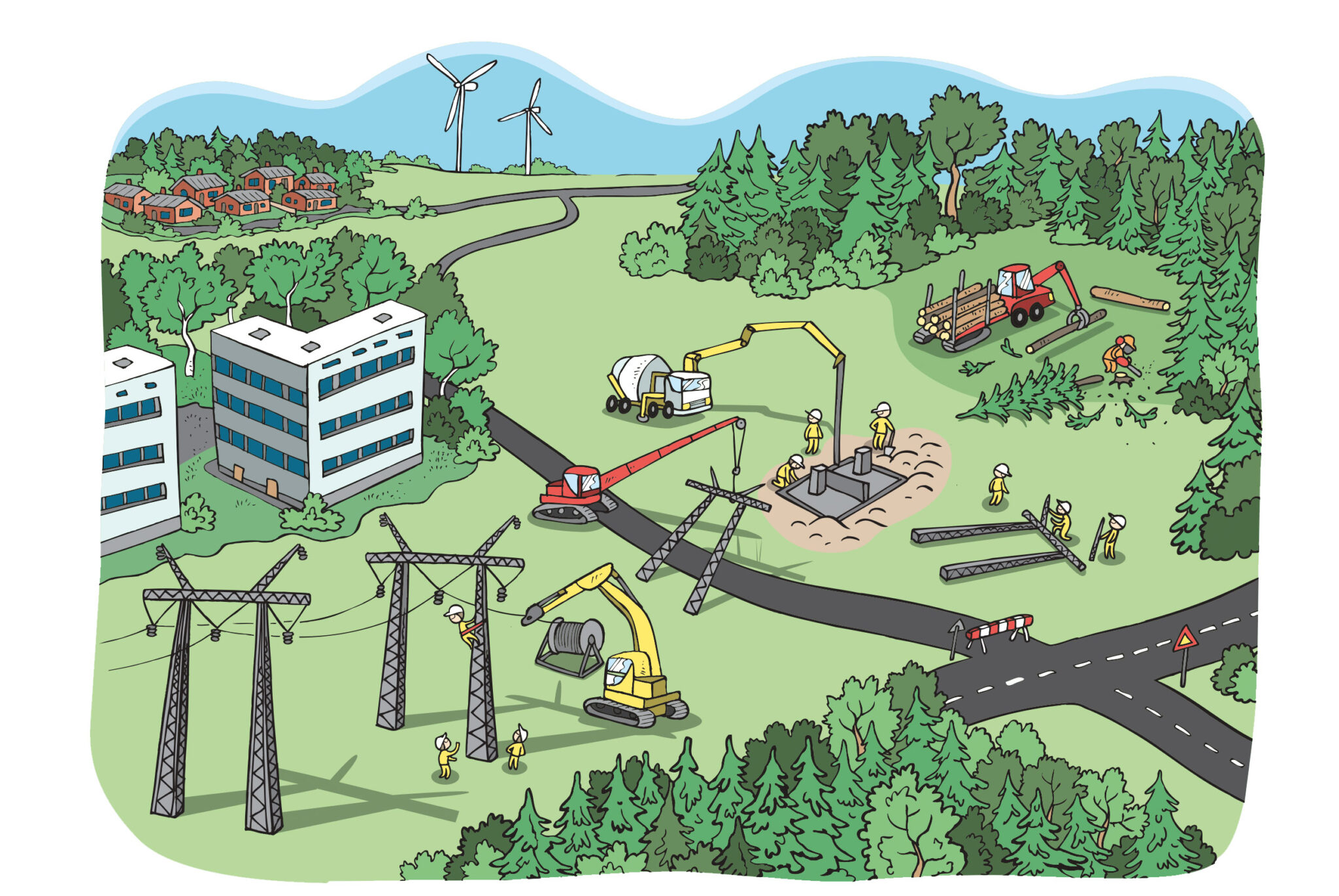The purpose of the Crystal-Clear Line project is to clarify the responsibilities for occupational safety between the client and suppliers.
The main idea is to ensure that the responsibilities imposed on the client and supplier by means of legislation are clear, and that the responsible parties manage their own obligations without overreaching or under-reaching into each other’s areas of responsibility.
In 2019, we organised several events to enable the suppliers and Fingrid’s personnel to discuss the project. The project was also discussed with the suppliers in management discussions, the occupational safety seminar and the supplier occupational safety group.
We rewrote the contract terms concerning safety in 2019, and the new terms were taken into use on 1 January 2020. A lot of detailed requirements were removed from the contract terms, which were restructured to improve readability, and the number of pages decreased by about one-third. The details removed from the contract terms will be transferred to the material concerning best occupational safety practices, which will act as an aid and a recommendation on Fingrid’s worksites. The project does not change any practices related to the safety of electrical work and operations.
The new contract terms strongly emphasise the supplier’s responsibility for safety planning and occupational safety monitoring. For example, the supplier is responsible for drawing up a safety plan and risk assessment, creating work plans for any work defined by the supplier, creating risk assessments for any identified work tasks or worksites that cause a specific hazard, and for planning the necessary first aid preparedness for the worksite.
The supplier’s safety plan must describe the responsibilities and occupational safety practices, and it acts as a plan for the more detailed plans that must be drawn up and of risk assessments. The sanction practices were also substantially modified. According to the new contract terms, the supplier must have in place notice practices and practices for intervening in unsafe activities that violate the rules and requirements, whereas the earlier contract terms emphasised the sanctions imposed by the client.
The change will have a strong effect on the client’s occupational safety assurance practices, such as the worksite visits made by Fingrid specialists, corporate responsibility audits and management occupational safety walks. Fingrid’s worksites will continue to operate on the principle that everyone is entitled and obliged to intervene in unsafe activities.
Fingrid’s representatives must always put a stop to any work identified as unsafe before immediately contacting the supplier’s representative. This enables Fingrid to find out why the work was not being done safely, whether the supplier had planned the work safely and how the employee was trained on the safe performance of the work. If necessary, the supplier is asked to review its occupational safety processes. In other words, the client’s occupational safety assurance visits focus on assuring the quality of the supplier’s occupational safety process rather than searching for individual errors.
The occupational safety responsibilities of the construction contractor and the main contractor on a building site are set out in the Government Decree on the Safety of Construction Work (205/2009). The construction contractor, employer and planner must separately and jointly ensure that the work does not present a hazard to the people working on the site or in its sphere of influence.






